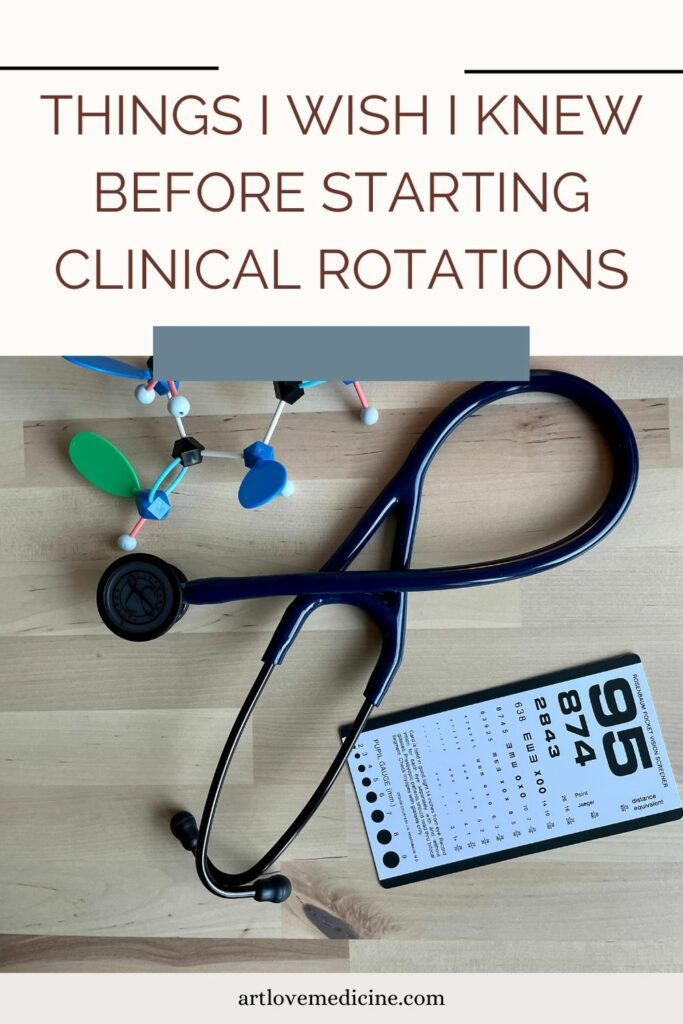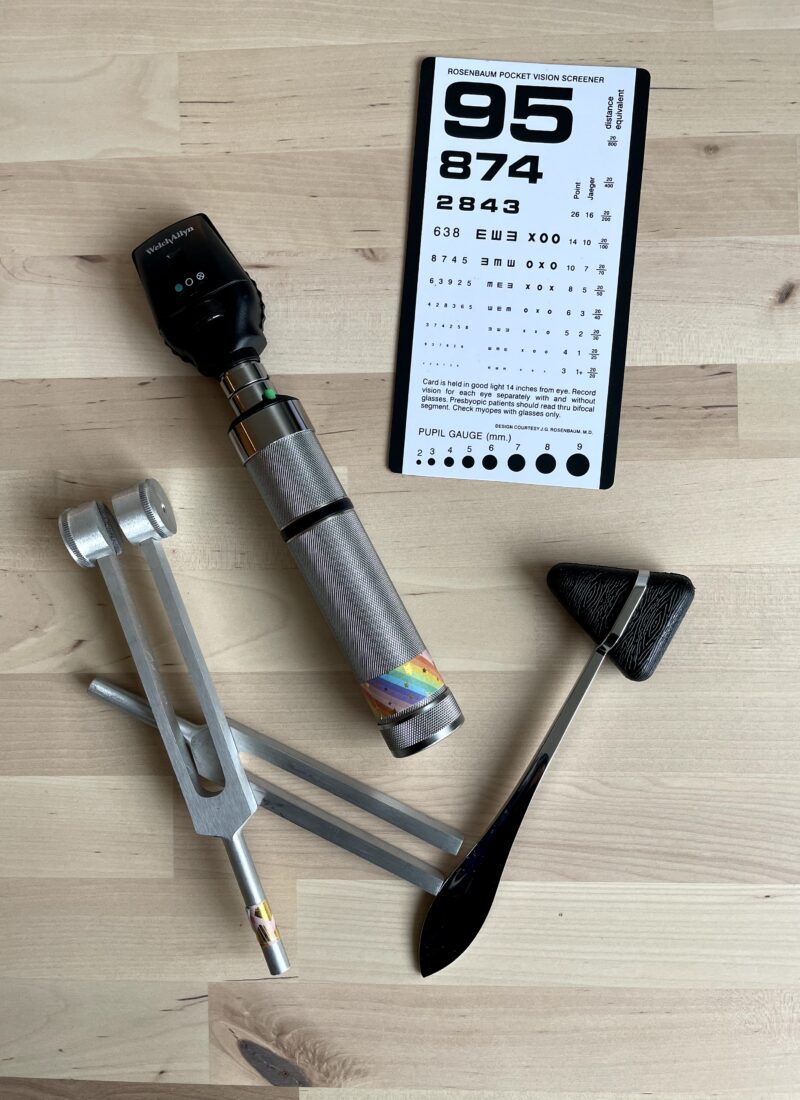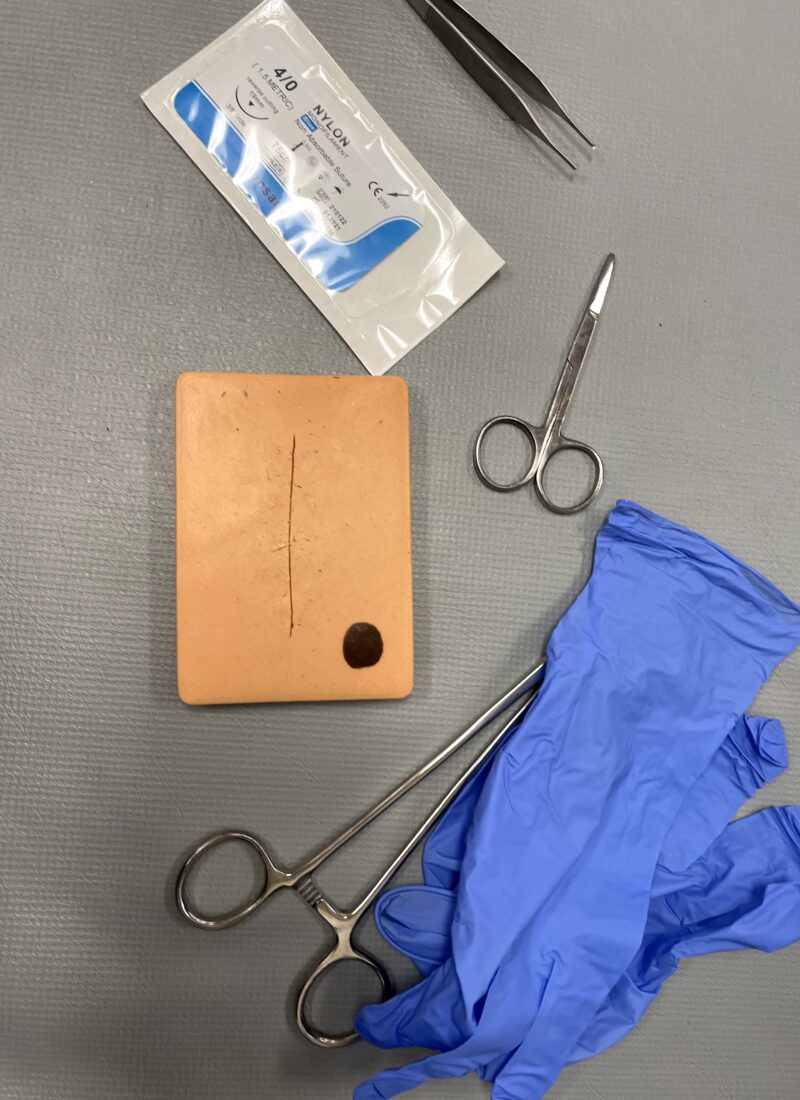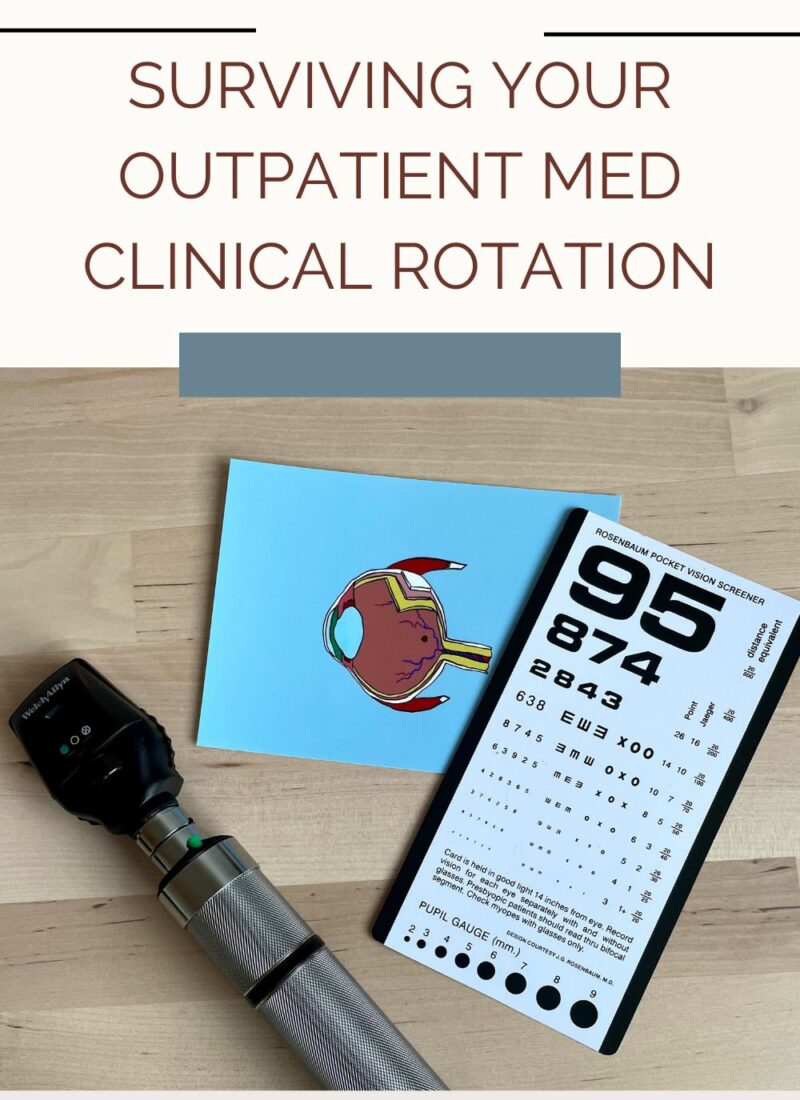.
These are things that I wish someone would have told me or prepared me for prior to starting PA clinical rotations. I recently gave a talk, along with some of my classmates, on what to expect in clinical rotations (from a student’s perspective) to some younger classes in our program to help prepare them for their upcoming rotations.
While in didactic year of PA school, I so couldn’t wait for clinical rotations. In my head, I thought they would be so much easier and let me be less stressed while in PA school. I unrealistically glorified them and thought that once I reached clinical rotations, PA school would be a breeze until graduation.
LOL, Plot Twist: I was wrong.
Yes, clinical rotations are much different than didactic year, but they definitely aren’t easy. I will say that it is a different type of stress than didactic year. Also, overall, I personally did have more free time during clinical rotations compared to during didactic year. So, there were definitely benefits to clinical year, but they were much different than I expected.
I think that a key thing going into your clinical rotation year is to have open expectations. They are something to look forward to: I mean, you haven’t been constantly studying the last year for nothing, right? But at the same time, they will be difficult and will teach you lessons that you would have never expected to learn.
Please note, this is just my personal experience and all opinions and recommendations on this blog are my own. My opinions and recommendations do not reflect the opinions or recommendations of my employers or schools. Nothing in this article is intended as medical advice. I share all this information to share information I wish I would have known prior to my experiences. Everything on the blog is just my opinion and experiences.
Things that I wish I knew before starting my PA school clinical rotations
Things will not go the way you think they will
No matter what expectations or ideas you have about rotations, at some point, things will go differently than you think they will. Your preceptor may not be helpful, you may get yelled at for something that wasn’t your fault, you may make a mistake, you will answer questions wrong, you will encounter ethical dilemmas. The list goes on and on.
Considering that you will not be able to plan exactly what will happen in rotations (or life in general), enter your clinical rotations with an open mind. Be open and thankful for the experience (good and bad), and know that you only have a few weeks until you’re off to a new rotation.
Some rotations will teach you incredible things, while others may seem boring, while others will teach you exactly the type of provider you do NOT want to be. Be open to it all. I can say that I learned a lot in all my rotations, even though some of them felt really terrible at the time.
You may see things that are wrong, don’t be afraid to speak up for your patients
One thing that I wasn’t expecting is how (just like in all professions), people do things that are wrong, like ethically. Talking to my classmates, I realized that all of us saw things on our rotations that were ethically wrong at times. I am thankful that my school gave us an ethics class to help train us how to approach (and process) these situations.
My advice is to “speak up.” When you see something wrong, speak up. It is harder said than done, but necessary.
Don’t forget that your patients are human
You are taking care of humans. You are talking about humans. You are treating humans.
After you spend didactic year learning from a textbook all of the anatomy and physiology, it seems so impersonal, yet normal to you. When transitioning to working with patients in clinical rotations, remember that creating a diagnosis from symptoms and lab values is no longer a test question, but a person.
Often, you may see people treated not like people. Please, whatever you do, treat your patients like people. Treat them with respect. Taking an extra minute to explain something or fill up someone’s water cup can make a difference that you may not realize. Listen to them tell a story about their dog or help them put their sock back on. You will help make them feel like a human again in a place that is constantly stripping away their humanity.
Always be kind
Be kind to everyone. This somewhat goes with the above point to treat your patients correctly, but this also goes to everyone you encounter. The nurses, the residents, the techs, the janitors, the cafeteria worker – all deserve your kindness.
Sometimes people are really mean to students, but 99.9% of the time, it has nothing to do with you. Don’t take it personal and continue being kind. (again much harder said than done sometimes).
Some rotations will be a lot harder than others
Since you are rotating through different clinical rotations and different offices and hospital systems, some will naturally be more difficult than others. Surgery is one of those that tends to be harder for some people, but some people absolutely love it.
I have found that a lot of the difficulty factor depends on the site, but not necessarily the specialty. The hardest for me have been the ones with really long hours, not a lot of teaching, and high expectations, with little time left to study. This have been unrelated to the specialty.
I think that rotations at the beginning of your clinical year tend to be more difficult as well. It is a big jump to go from didactic year to clinical year and because of that it is a little more difficult in the first rotations. Once you get the flow down and learn how to study for your end of rotation exams, it will be easier on rotations in general.
Be flexible
Flexibility is key in rotations. (And I know we all get tired of our programs saying to be flexible all the time), but really being flexible will save you so much stress. Every rotation is so so different. You may not know your schedule for the rotation until the first day. You may not be able to contact your preceptor prior to the first day. The rotation may have you at different sites every day all week.
If you’re flexible and roll with it, then things will be a lot less stressful than if you are constantly trying to control it all.
Everyone will have a different experience, even at the same rotations
One thing that surprised me was that everyone in my class had such different experiences with their rotations that were even at the same sites. My friend and I had a few rotations at the same places but at different times of year and had completely different experiences. In healthcare, the people and administrators are constantly changing, meaning the experience of a place completely changes.
The rotation that your friend hated, may be the rotation that you love.
Share your experiences
Sometimes, rotations will be just plain hard. Like really mentally difficult. You will see people suffering in ways that you maybe have never seen before. When seeing all of this for the first time, it can be traumatic or weigh heavily on you. I recommend talking to someone about it. Whether its your classmates, a mentor, or someone that you’re close to that is willing to hear you, talk to someone.
I held in a lot of the things I struggled with on rotation for a long time, but eventually I found that talking to other classmates that had been through the same things was really beneficial. It made me realize that I’m not alone in feeling this way and helped me to better process it all.
Don’t give up
Rotations will teach you a lot, and also test your patience a lot. It is a learning experience for sure. Just don’t give up. A great thing about rotations is that they don’t last forever. Even if you absolutely hate your OBGYN rotation (or insert any other rotation here), you likely only have a few more weeks of it and you never have to take a job in that specialty. Your next rotation will likely be better and before you know it, you will be done with your rotations. Even though some of my rotations were really rough at the time, it truly does pass by quicker than you realize.
Other Posts You May Like:
How to Survive a Family Medicine Rotation in PA School
Things I Wish I Knew Before Starting PA School
I hope that these tips are helpful and encouraging to you as you start your rotations. It can be scary (and exciting!), but you totally go this!
Thanks for reading!
-Liz





Leave a Reply